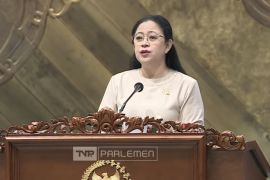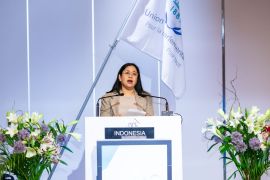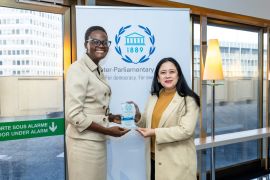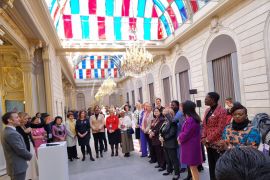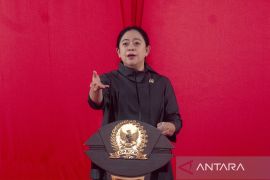"We are still discussing it. We have to be firm enough, so that we will not fail again," the KPK chief, Agus Rahardjo, said.Jakarta (ANTARA News) - Indonesias anti-graft agency KPK is seeking a new investigation warrant after its naming of House Speaker Setya Novanto as a graft suspect in the high profile Electronic ID project was anulled by a pretrial court recently.
"We are still discussing it. We have to be firm enough, so that we will not fail again," the KPK chief, Agus Rahardjo, said here, Friday.
KPK spokesman Febri Diansyah said the KPK was still focusing on scrutinizing the courts decision, adding "there are points that indeed need to be scrutinized carefully."
Firstly, it has to check if the investigation should be carried out without a suspect being named or with the suspect being named all at once.
"KPK understands Article 44 Paragraph 1 and 4 in the law on KPK, which states that since the probe begins, we may collect evidence and after two pieces of evidence are found, we may move to investigating with suspects being named," he remarked.
Therefore, based on the article, the KPK has named the suspect so far, he added.
"That is KPKs understanding of its law, but according to KUHAP (Code of Proceedings), the suspect is named after investigation is done. That is what we are still studying," Febri maintained.
Secondly, it is the courts decision that evidence used in other cases, in this case those of Irman and Sugiharto (defendants in the same case), may not be used, he noted.
Febri revealed that "the corruption court has even stated in its ruling (on Irman and Sugiharto) that more than 6,000 pieces of evidence had been kept for use in the case of separate defendants. So, there are two different rulings."
Based on the corruption courts ruling, evidence used in the E -KTP case can be used in the trials of all parties involved in it, he stressed.
The KPK has applied for the extension of ban for Novanto to travel abroad, following the pretrial courts ruling that Novantos naming as a suspect was done against procedures.(*)
Editor: Heru Purwanto
Copyright © ANTARA 2017

